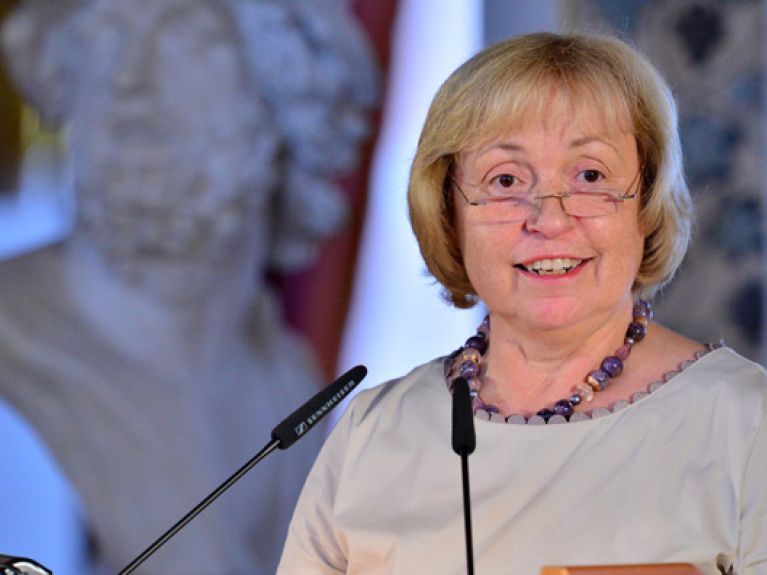"Building peace in the minds of men and women"
A brief interview with Maria Böhmer, Minister of State at Germany's Federal Foreign Office and President of the UNESCO World Heritage Committee, on UNESCO's 70th anniversary.

UNESCO's Constitution was signed 70 years ago. Today, people primarily associate UNESCO with the world's heritage. It lists more than 1,000 places as World Heritage Sites, 40 of them in Germany. Why do we need the "World Heritage" title?
UNESCO was founded after the Second World War in order to "build peace in the minds of men and women" through cooperation in education, science and culture. Right up to today, all of UNESCO's diverse activities are derived from this fundamental idea and legitimate the organization afresh for every generation. The World Heritage Convention, too, was founded with the aim of entrusting the most important cultural and natural monuments to the care of humanity as a whole by way of dialogue-oriented procedures. Preserving these monuments and passing them on to following generations is the task of the entire international community.
The destruction of cultural treasures in crisis areas and war zones is a growing cause for concern. What can UNESCO do here, and what is Germany's role in this context?
At their General Conference held in Paris in November 2015, UNESCO's Member States are deciding on a strategy for protecting cultural assets and cultural diversity in armed conflicts. It follows on from the Bonn Declaration of the World Heritage Committee and the UN Resolution on "Saving the Cultural Heritage of Iraq". Its aim is to enable the affected crisis countries to make a preventive and curative response to the loss of culture and to systematically incorporate the protection of cultural heritage into humanitarian and peace-building activities. Germany is actively pursuing the same objective – nationally, bilaterally and multilaterally. The Federal Cabinet recently approved a bill to effectively combat the illegal trade in cultural assets obtained by looting or illicit excavation. Germany is helping with the restoration of badly damaged cultural assets and historic sites. The Federal Foreign Office and institutions like the German Archaeological Institute are helping to do the groundwork for conservation and restoration. We are collaborating closely with UNESCO in this field.
In addition to the signing of UNESCO's Constitution, another anniversary is being celebrated in 2015: the UNESCO Convention on the Diversity of Cultural Expressions celebrated its tenth anniversary in October. To what extent is the Convention a model for German cultural and media policy ?
The Convention's aim is to strengthen the joint responsibility of the state, business and civil society for maintaining the diversity of cultural forms of expression. This characterizes our democratic and pluralistic community and is important for creativity and competition, especially in an ever-accelerating process of globalization and liberalization.
70th anniversary of the signing of the UNESCO Constitution on 16 November 2015

